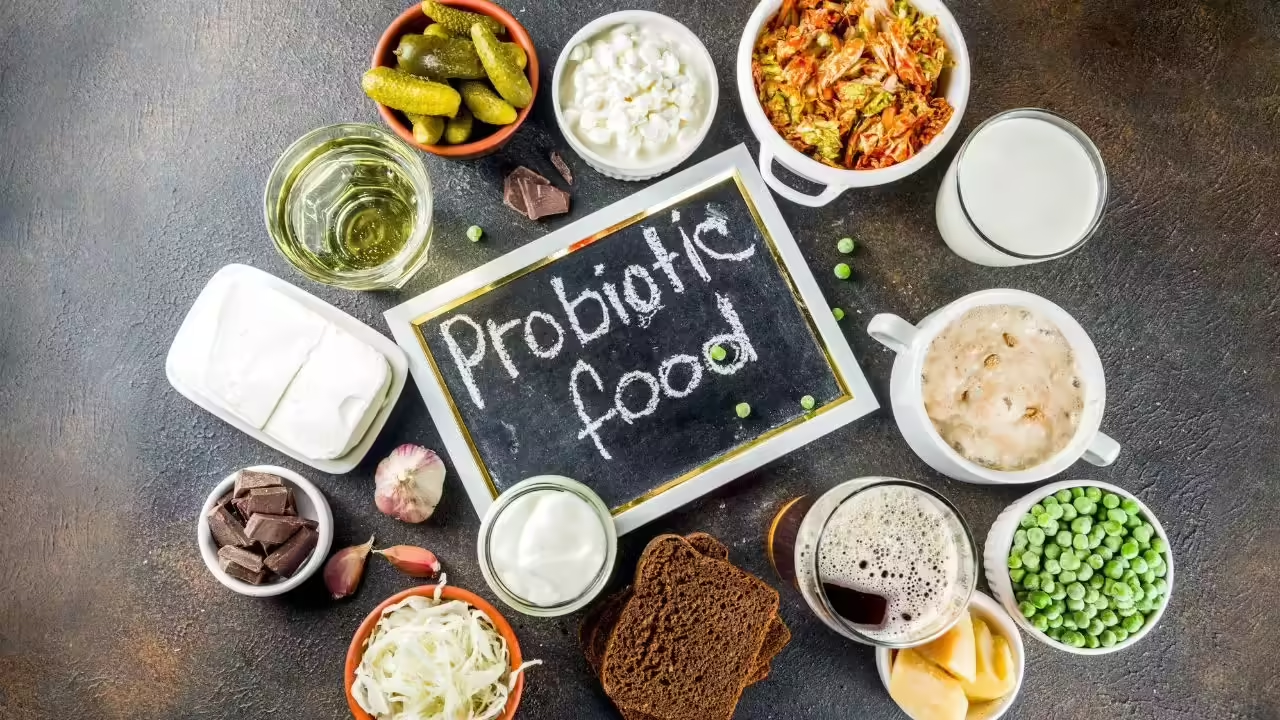The Ancient Art of Fermentation and Its Modern Revival
Fermented foods, a cornerstone of traditional diets across various cultures, are experiencing a significant resurgence in popularity, driven by a growing understanding of their profound health benefits. At their core, these foods undergo a transformative process where beneficial microorganisms, such as bacteria and yeasts, convert carbohydrates into alcohol or organic acids. This not only imbues them with distinctive flavors and textures but also significantly enhances their nutritional profile. From ancient preservation techniques to modern culinary staples, fermentation harnesses microbial activity to create foods that are both delicious and remarkably good for us Source: Harvard Health. This process of controlled microbial growth dates back thousands of years, originally serving as a vital method for food preservation before refrigeration, ensuring sustenance through lean seasons and long journeys. Today, we appreciate fermentation not just for its preservative qualities but for its ability to create a living food matrix rich in beneficial compounds.
Nurturing Your Gut The Probiotic Powerhouse
One of the most compelling advantages of integrating fermented foods into your diet is their profound impact on the gut microbiome. The human gut hosts trillions of microorganisms—bacteria, viruses, fungi, and other microbes—collectively known as the gut microbiome, which plays a pivotal role in digestion, nutrient absorption, immune function, and even mental well-being. Fermentation actively introduces beneficial bacteria, commonly known as probiotics, into the digestive system. These live microorganisms, when consumed in adequate amounts, confer a health benefit on the host by helping to balance the gut flora Source: National Institutes of Health (NCBI). A robust and diverse gut microbiome is crucial for maintaining intestinal integrity, producing essential vitamins, and warding off pathogenic bacteria.
The balance of gut flora directly influences various bodily functions. A well-balanced gut can optimize digestion, ensuring efficient breakdown and absorption of nutrients from your food. Furthermore, a significant portion of the immune system resides in the gut, making a healthy microbiome essential for a strong defense against illness. Emerging research also highlights the intricate gut-brain axis, suggesting that gut health can influence mood, cognitive function, and mental health. Incorporating probiotic-rich fermented foods can aid in preventing and alleviating common digestive issues such as irritable bowel syndrome (IBS), chronic constipation, and various forms of diarrhea, by restoring and maintaining a harmonious microbial environment Source: Mayo Clinic. This microbial diversity acts as a protective shield, contributing to overall digestive comfort and systemic health.
Unlocking Nutritional Value Enhanced Bioavailability
Beyond their direct probiotic contribution, fermented foods significantly improve nutrient bioavailability. The fermentation process acts as a biological pre-digestion, where microorganisms break down complex compounds in food. This includes the degradation of anti-nutrients—naturally occurring compounds that can interfere with the absorption of vitamins and minerals. For example, phytates found in grains and legumes, or oxalates in certain vegetables, are often reduced during fermentation, making essential minerals like iron, zinc, and calcium more accessible to the body. This enzymatic breakdown effectively transforms the nutritional landscape of the food.
A prime example of enhanced digestibility is seen in fermented dairy products like yogurt and kefir. Many individuals experience discomfort from lactose intolerance because their bodies lack sufficient lactase, the enzyme needed to break down lactose, the sugar found in milk. However, the bacteria used in fermenting milk convert much of the lactose into lactic acid, making these products significantly easier to digest for those with lactose sensitivities Source: Medical News Today. Moreover, the fermentation process can actually boost the nutritional content of foods. Certain fermented foods, such as kimchi and sauerkraut, are rich in vitamins C and K, and various B vitamins. The microbial activity can synthesize new vitamins or increase the concentrations of existing ones, further enriching the food’s profile Source: Harvard Health. This means you’re not just eating food; you’re consuming a supercharged version of it.
A Culinary Journey Incorporating Fermented Foods into Your Diet
Integrating fermented foods into your daily diet is a delightful and effective way to support overall health, offering a spectrum of flavors and textures to explore. The variety available is vast, catering to diverse palates and dietary preferences. Common and accessible examples include:
- Yogurt and Kefir: These dairy-based ferments are excellent sources of probiotics. Enjoy them plain, with fruit, in smoothies, or as a base for dressings.
- Sauerkraut and Kimchi: Fermented cabbage dishes, originating from Germany and Korea respectively, are pungent and nutrient-dense. They make fantastic side dishes, additions to sandwiches, or vibrant toppings for savory meals.
- Tempeh and Miso: Hailing from East Asia, these fermented soy products offer unique umami flavors. Tempeh, a firm block of fermented soybeans, is a superb plant-based protein for stir-fries and sandwiches. Miso, a fermented soybean paste, is indispensable for soups, marinades, and glazes.
- Sourdough Bread: The characteristic tang of sourdough comes from a slow fermentation process using wild yeast and lactobacilli. It’s often easier to digest for some people due to the breakdown of gluten and phytic acid.
- Kombucha: This fizzy, fermented tea beverage is a refreshing alternative to sugary drinks, offering a dose of probiotics and antioxidants.
Incorporating these foods doesn’t require a complete dietary overhaul. Start small: add a spoonful of sauerkraut to your lunch, enjoy a probiotic-rich yogurt for breakfast, or swap out your regular bread for sourdough. Experiment with different types and find what you enjoy most. The benefits extend far beyond just flavor, contributing to a healthier gut, enhanced nutrient absorption, and improved overall well-being. By embracing the ancient wisdom of fermentation, you can easily nourish your body and delight your taste buds simultaneously.
Sources
- Harvard Health – Fermented foods can boost your health
- Mayo Clinic – Probiotics: What are they, and what do they do?
- Medical News Today – What are the health benefits of fermented foods?
- National Institutes of Health (NCBI) – Probiotics and Prebiotics: A Narrative Review
Fermentation is more than a preservation technique—it’s a powerful bridge between ancient tradition and modern wellness. By enriching gut health, boosting nutrient absorption, and offering diverse culinary experiences, fermented foods remain a timeless way to nourish both body and mind.

